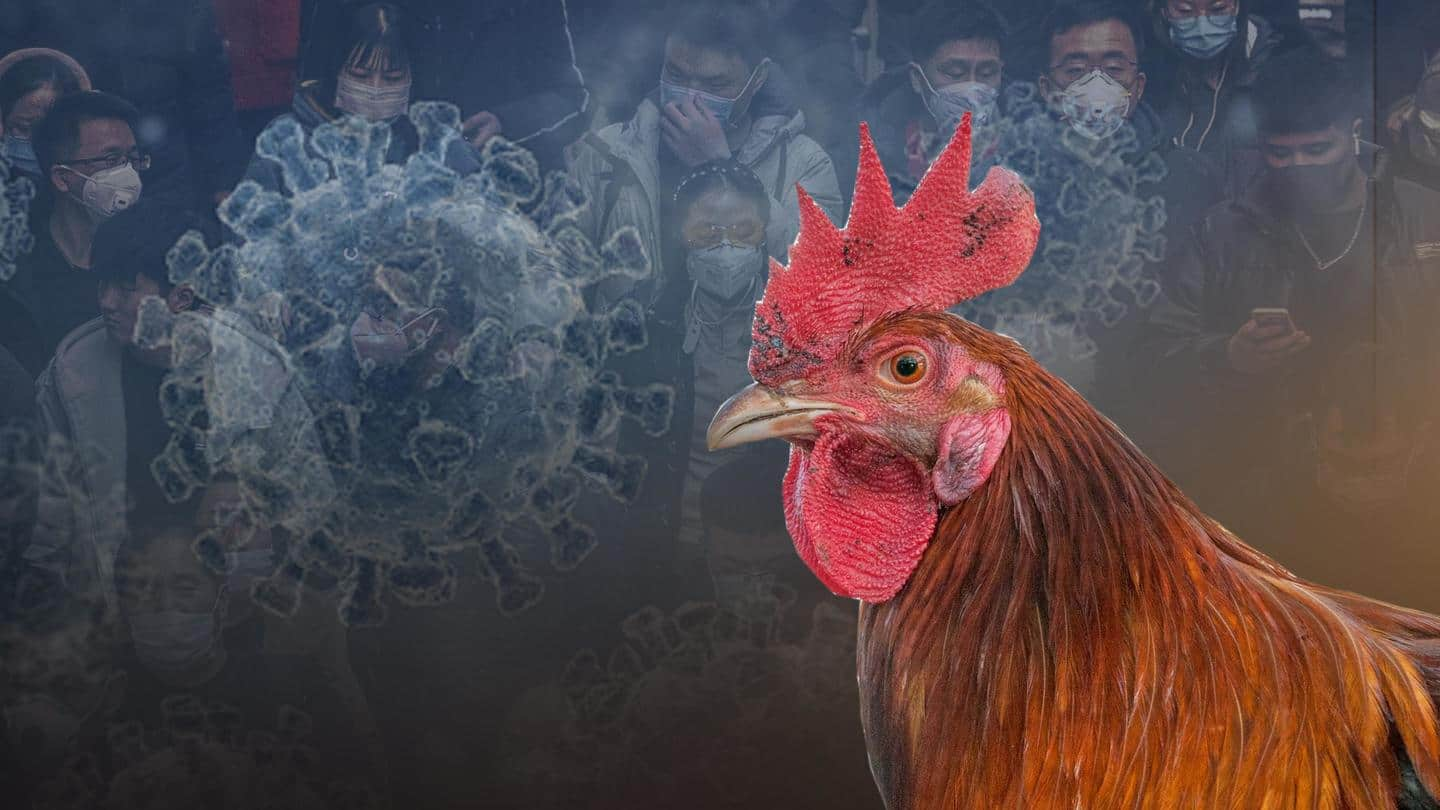
China reports first human case of H3N8 bird flu
What's the story
China has confirmed the first human infection with the H3N8 strain of avian flu in the Henan province.
A four-year-old boy tested positive for the H3N8 strain after complaining of fever and other symptoms.
However, the risk of widespread transmission among humans is low, said China's National Health Commission (NHC).
None of the boy's close contacts were infected, it said.
Context
Why does this story matter?
The H3N8 strain had earlier been detected elsewhere in the world in horses, dogs, birds, and seals, the NHC said.
However, this is the first H3N8 human case that has been reported.
Previous cases of avian flu or bird flu involving humans have largely involved the H5N1 and H7N9 strains, according to the US Centers for Disease Control.
Statement
Boy's family raised chickens at home
The family of the boy raised chickens at home and lived in an area populated by wild ducks, the NHC said in a statement.
The boy's case was a "one-off cross-species transmission and the risk of large-scale transmission is low," it said.
The strain directly affected the boy, but it doesn't have the "ability to effectively infect humans," it added.
Strains
Other cases of bird flu in China
In June 2021, China had reported the first human infection with the H10N3 strain of bird flu.
The patient was a 41-year-old man from Zhenjiang city of the Jiangsu province.
The infection was transmitted via poultry.
In February 2021, the country had reported an H5N8 outbreak in Lianyungang, Jiangsu.
In April 2021, the H5N6 strain was detected in wild birds in Shenyang, Liaoning.
Information
Stay away from sick, dead birds: NHC
Even though the NHC said that after testing, the boy's human contacts didn't find any "abnormalities," it warned people to stay away from sick and dead birds. It also asked people to seek medical attention at the earliest in case of fever or respiratory issues.
Avian flu
What is avian influenza?
Avian influenza primarily infects birds.
It is often contracted by contact with sick birds and can also be passed from person to person.
"Human infections of zoonotic, or animal-borne, influenzas are primarily acquired through direct contact with infected animals or contaminated environments, but do not result in the efficient transmission of these viruses between people," according to the World Health Organization.
Symptoms
Symptoms of avian influenza
People with avian influenza A virus report mild to severe influenza-like illness symptoms, according to US Centers for Disease Control.
Other symptoms include fever, cough, sore throat, muscle aches, nausea, abdominal pain, diarrhea, and vomiting.
Shortness of breath, difficulty in breathing, pneumonia, acute respiratory distress, viral pneumonia, and respiratory failure may occur in severe cases.
The neurological impact includes altered mental status and seizures.
Do you know?
India reported first H5N1 bird flu death in July 2021
In July 2021, India reported its first case of human death due to H5N1 avian influenza after an 11-year-old boy from Haryana died. The WHO said that the boy lived with a family member who owned a butchery.